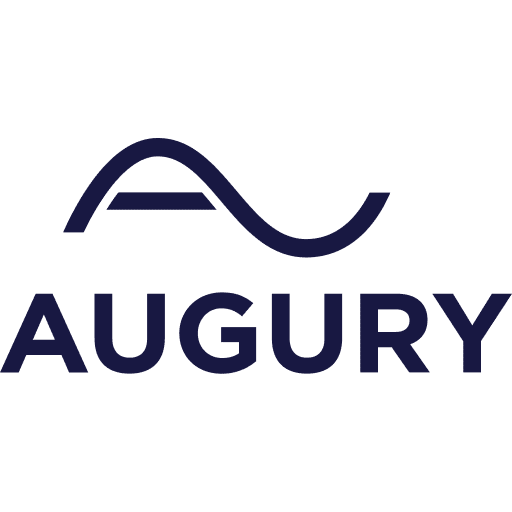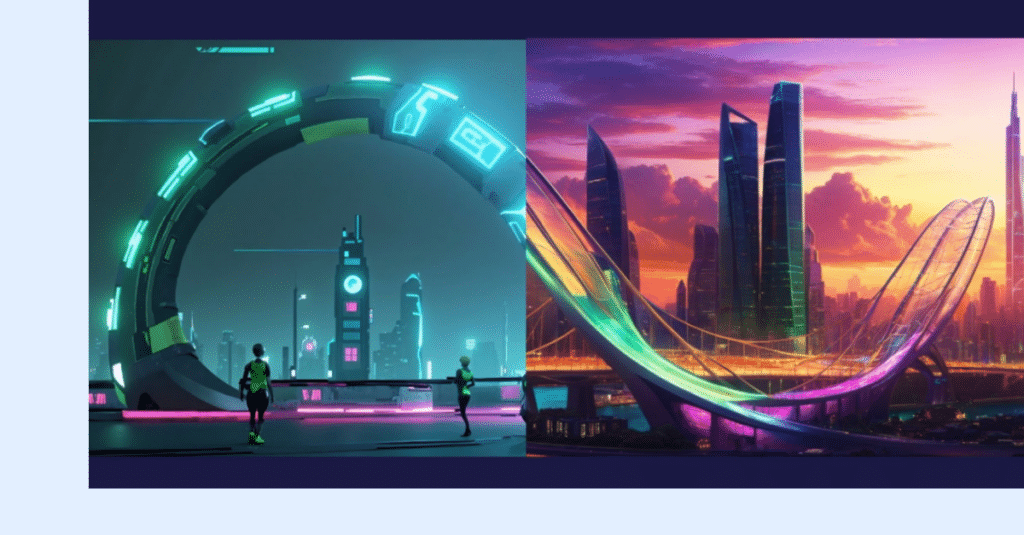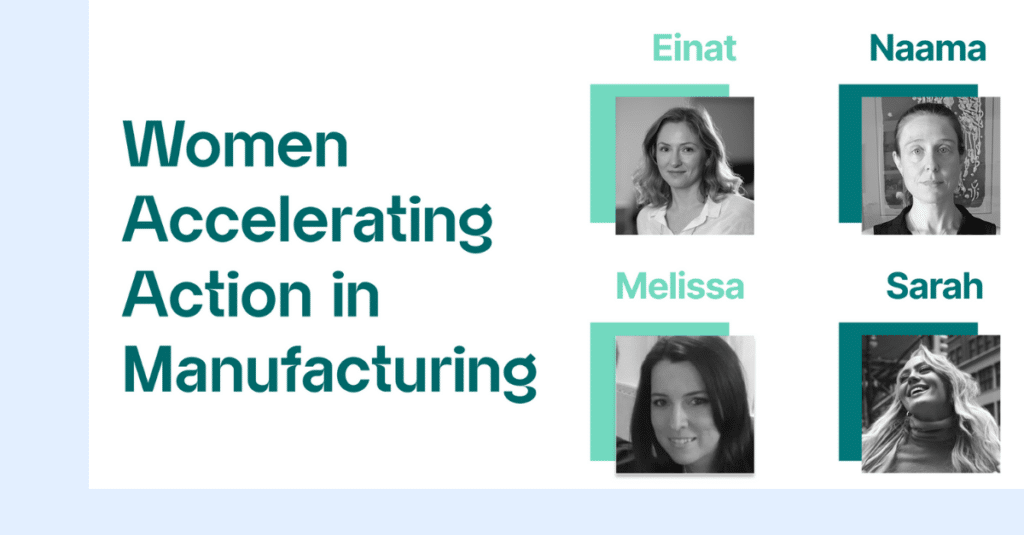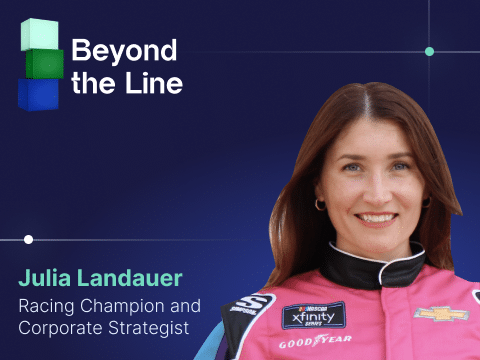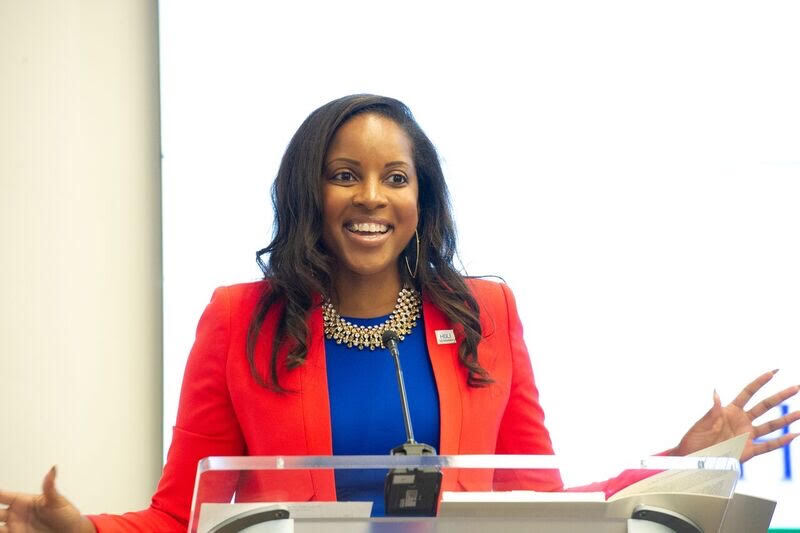
Growing up in Detroit, Calicia Johnson dreamed of designing cars. Now she fuels them by building production facilities for Chevron. A Strategy and Development Manager for production facilities and well pads in West Texas, Johnson describes her job as a real estate developer in Oil and Gas.
Augury Sales Development Representative Nick Seabrook sat down with Johnson to discuss her time as a maintenance engineer, her non-profit Student Career Studio, and getting comfortable with being uncomfortable.
What are some of your core responsibilities at Chevron?
Our geologists and our scientists go find the oil. I’m responsible for identifying where the drilling rig will go, where the facilities will go, where the roads will go for access to those facilities, ensuring the pipe lengths are sufficient, and providing cost estimates for the business plan. So basically, I turn an empty, open field into an oil-making machine.
My role is totally different from back in my maintenance days with a previous employer. When I was a rotating equipment engineer, I was working in a chemical plant doing preventive maintenance with vibration analysis and helping plan maintenance downtime.
I was actually fortunate enough to be on the recommissioning team. A plant had been shut down for about two years and they wanted to bring it back so we had to open up and inspect all of the equipment to see what condition it was in. I learn by doing, so being hands on in that role was pretty awesome. Over the last ten years of my career, I’ve had seven roles, so I’ve been able to move around and every role has been totally different.
What got you interested in pursuing a career in the engineering field?
I’m originally from Detroit, Michigan so I grew up in the automotive industry. My Dad was an engineer in the auto industry. He would always take me around to the vehicle assembly plant so I grew up watching cars get built and I thought it was so cool. I wanted to be an engineer so I could do the same thing and design futuristic cars.
There was also a pre-college engineering program in the Detroit area designed for middle and high school students. I took classes on Saturday mornings and would participate in various summer engineering programs held at different colleges and universities in Michigan. That definitely helped me to confirm my interest in STEM, specifically engineering, before I went to college.
Apart from your Dad, who were the people you looked up to?
When I speak with other women that are majoring in engineering in school or are engineers, for most of us, it was someone in our immediate family that was an engineer. A lot of movies and TV shows, they still always talk about doctors, lawyers and business owners. You never hear them talk about engineering.
I definitely think representation and exposure are key. But I feel like if students or their parents don’t know about engineering or the programs in their local cities, with social media you can follow different companies and nonprofit organizations to learn about various careers. The high school counselor is also a big part of it, just to expose students to different career paths.
And what does it mean to you to be a black woman and an engineering leader?
It means everything to me. In addition to my full-time role, I recruit at Georgia institute of technology in Atlanta. At one time, I was the only female and the only African-American on the recruiting team.
At one particular career fair a few years ago, I remember my entire line at the career fair being nothing but black students. I had an Aha moment like wow, these students really are paying attention to if the company’s recruiting team is diverse. They really have to see themselves at this company. It’s also really important to me to be transparent about my challenges, my ups and downs so they can feel like I’m not at an unattainable level of success, and that they can do the same thing.
What was one of the biggest obstacles you had to overcome to get to where you are today?
Being comfortable with being uncomfortable has been my biggest challenge. Raising my hand for positions and jobs that are not comfortable. A few years ago, I moved to Midland, Texas, which is in the middle of nowhere. They were having a hard time getting people to come out there so I raised my hand. I’m back in Houston now, but people knowing that I did the role, adds more credibility to me. When you do things that a lot of people don’t want to do, you get a badge of honor. So I always say raise your hand for the hard roles to set yourself apart.
Can you tell me about Student Career Studio?
Last summer, I launched my non-profit Student Career Studio where my goal is basically to bridge the gap between all of the awesome opportunities out there and the students who need them the most. I focus on providing collegiate students access to various scholarships, internships, and leadership opportunities, especially students from under-represented groups or non-target schools.
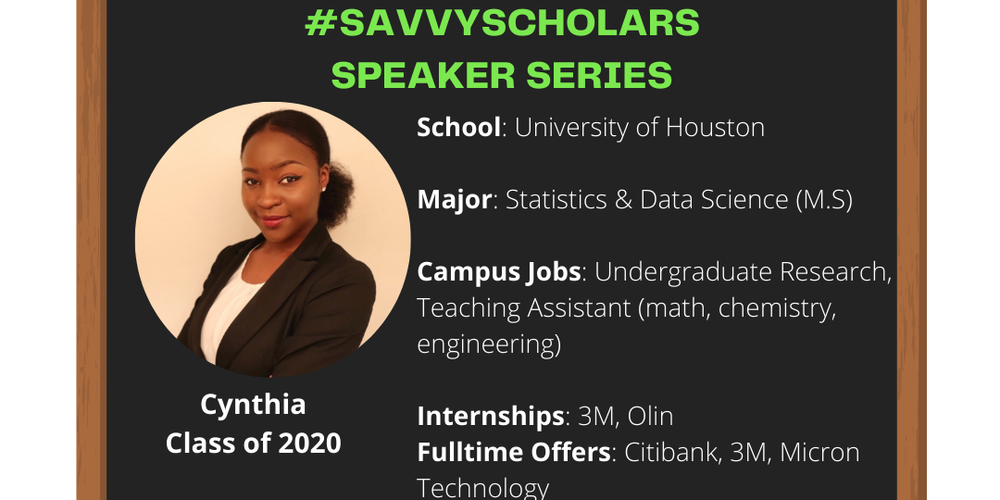
Studio Career Studio Speaker Series
On Thursdays, I have a speaker series where I chat with recruiters from various companies to give students a chance to ask any questions like how they can stand out during the recruiting process and we have professionals share their journey about how they got to where they are.
A lot of students hear about so-and-so accepting an internship offer with Facebook or Microsoft, but they don’t know that it was the third or fourth time they actually interviewed. It can be really discouraging when you see all these successes on social media, so I want to share more about what it took for them to get there. That’s my passion project, to encourage young people to get their dream job and let them know that they are able to achieve success, whatever that means for them.
What advice would you give your younger self and why?
I would tell my younger self to challenge yourself more and invest in personal and professional development to enhance your skill set. Life only gets busier as you get older, so take advantage of the time you have now to develop good habits and take care of your mental and physical health. Learn to embrace change because that is the only constant in this world.
Maintain friendships, don’t let life take over, and surround yourself with positive people who add value to your life. Don’t worry about what others think and what they are doing, stay in your lane because you are your only competition. Lastly, I would say get comfortable with being uncomfortable because that is how you grow.
